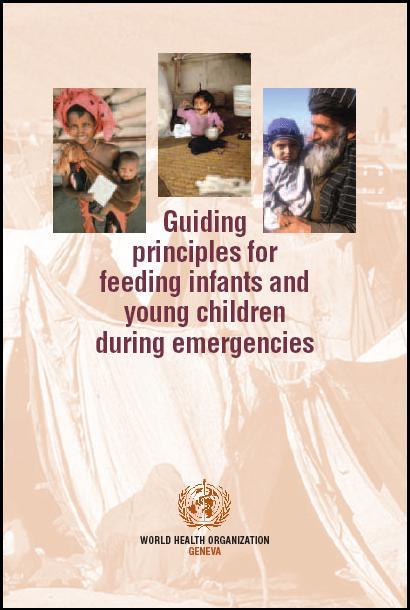Guiding principles for feeding infants and young children during emergencies

Overview
Natural disasters, war, civil unrest and other catastrophes continue to disrupt, and often seriously endanger, the lives of millions of people around the world. Whatever their cause, emergencies pose a particularly grave threat to the health, nutritional status and very survival of infants and young children. Fortunately, much of the disability and death typical among this age group in such circumstances can be averted - provided proper feeding and care can be ensured.
The guiding principles presented here are intended to serve as a starting point for organizing sustained pragmatic field interventions that will ensure appropriate feeding and care for infants and young children at all stages of an organized emergency response. They should be applied flexibly in conjunction with suitable manuals, guidelines, training curricula and other practical field-oriented documentation that treat in detail a variety of interrelated topics.
Responsible national authorities and concerned international and non-government organizations are invited to use these guiding principles as a basis for training personnel responsible for emergency preparedness and response, and for reacting directly on behalf of needy populations during emergencies.
Meeting the specific nutritional requirements of infants and young children, including promoting and supporting optimal feeding practices, should be a routine part of any emergency relief response. Indeed, it should be at the centre of efforts to protect the right of affected children to food, life and a productive future.
